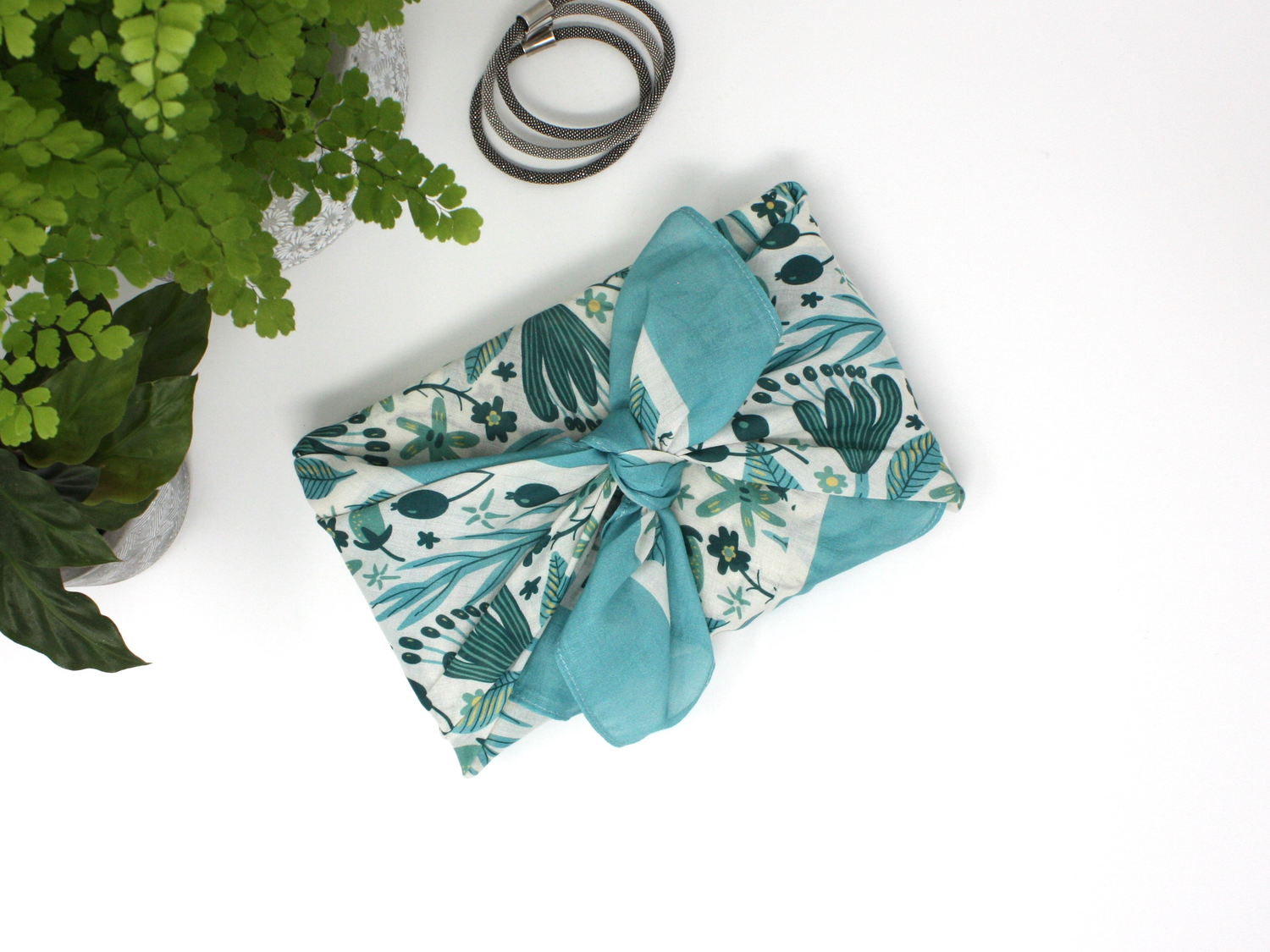With Christmas on the horizon the time for excess is approaching. So how do you make Christmas special and keep everyone, and the world happy? Here’s 12 top tips for eco Christmas gifting...

You may well have come across the 4R’s hierarchy before; it was first coined back in the 1970’s and it’s still a great place to start when it comes to many of sustainability questions:
1. REFUSE – do you actually need it?
2. REDUCE – can you cut back on the amount?
3. REUSE – will it have a long, useful life?
4. RECYCLE – what happens to it at end of life?
So lets explore the best eco gifting ideas for a more sustainable Christmas
REFUSE
1. Pause before you buy
The average person in the UK spent £408 on gifts in 2020. Now have a think about how many of the gifts you received last year you can remember? 3 or 4 maybe? Now don’t get me wrong, we all really appreciate all the thought and effort that goes into choosing gifts and its genuinely lovely to have a few gifts to open on Christmas morning. But the gifting mania can also be overwhelming, particularly if you live in a family with kids; trying to find new homes for all that new stuff. And I’ll bet a few of last year’s gifts are stashed away barely used at the back of a drawer, or [whisper] went off to a charity shop. So, if it’s things to ‘bulk out’ stockings, or ‘just something to open’, leave it in the shop!
Oh, and if you do decide to buy; refuse that bag too - paper or plastic - I’m sure you’ve plenty in the bag drawer already.
2. More ‘stuff’ isn’t the only way to treat
How about an experience; tickets to an exhibition, a day trip, or afternoon tea? It’s far more memorable. Alternatively make use of that lockdown hobby by making, rather than buying something; homemade jams, a plant you’ve grown, or a snood you’ve knitted; something you’ve personally made shows you care far more than just splashing the cash.
Or if you really can’t think of anything for your brother who has everything already, how about a charity donation? Choose charity that’s close to his heart, sponsor an animal via WWF or check out Oxfam gift cards where you can choose to support anything from ‘Bees’ to ‘A Lifesaving Loo’!

3. Use what you have to wrap
The most sustainable item is the one you already own. If you have unused rolls of wrapping paper that’s great. If you have some spare pieces of fabric, or scarves in your cupboard, then have a go at fabric gift wrapping with those. Even if the fabric’s unhemmed and too thick for knotting, you can tie with twine, ribbon or string; decorate with a spare Christmas decoration or foliage if you wish, and you have a lovely looking Insta-worthy gift (and of course a smug sense of satisfaction).

REDUCE
4. Watch out for over-packaging
Gift sets may look pretty but are often way over-packaged. Toiletry set which have the standard lotions and creams, THEN a plastic tray to hold all the items neatly in place, THEN a box round that again.
Try to look out for Brands which keep their packaging to a minimum, rather than fluff it out with extra tissue paper and padding. Extra packaging is extra raw materials and also means when products are being transported from factory to store, the stock is extra bulky so they’re literally ‘shipping air’, meaning more lorries doing more miles.
5. Shop locally in-store
Online deliveries from far away companies have extra layers of outer packaging. Not forgetting that if the product isn’t what you want when you actually see it, it just gets sent straight back again, meaning double the miles. So, take a look around your local High Street.
If you order from KindlyYarn online (we’re a small business, so not stocked in all towns yet) your product will arrive in a recycled paper envelope. In the UK all our goods are sent by Royal Mail, so arrive in your usual morning post, not a separate delivery van.
RE-USE
6. Choose wisely
Avoid those novelty items like Christmas socks, which let’s face it will probably get worn twice, particularly if they’re musical ones so can’t even be washed (yuk!). Try to buy something smaller, that’s a good quality, which will last well. If you’ve received something you love, brilliant, look after it well. If its fabric wash for example, wash only when its needed and when you do, washing at 30 degrees and air drying, rather than a hot wash and tumble drying, will not only use less energy but put far less stress on fabrics so they’ll stay in good condition for longer.
Oh, and if you have kids invest in rechargeable batteries. The average family uses 70 batteries a year! The technology on rechargeable batteries has leapt forwards massively over the past few years. The latest batteries can be recharged 2000 times and take just 15 mins to charge. It’ll cost a little more initially, but it’ll soon pay back.
7. Choose a gift with a history
The perfect gift doesn’t also always need to be brand new. How about a vintage bag, an antique photo frame or a upcycled lamp? The quality of older materials and antiques is often far better - after all its already stood the test of time - and it’s true, things then were made to last. Plus, you’ve given a unique present, so bonus points all round.

8. Include a gift receipt!
You might think you’ve found something just perfect, but we all get it wrong sometimes. I’d far rather someone took something back and swapped it for something they really love, than let it languish unused, unworn, unloved, because ‘it’s just not quite right’. Obviously if you’ve received a fabric wrap where the pattern is just a little bright for you, not a problem, just pass it along by using it to wrap a gift for your colour-loving friend on his or her next Birthday!
9. Wrap furoshiki style with fabric wraps!
Did you know in the UK we use 108 million rolls of wrapping paper and 40 million rolls of sticky tape every year? Fabric wraps are of course reusable, meant to be restyled and reused time and time again. At KindlyYarn we use a premium yarn, spun from long cotton fibres, so the material won’t bobble and pill like cheaper cottons can, meaning your fabric wraps will stay looking like new for years.
I’m also often asked if we do Mothers’ Day wraps etc, the answer is ‘No’, we don’t create designs for specific occasions, instead focusing on flexible, multipurpose designs, which could be used for say a Birthday OR Mother’s Day, so you get lots of opportunities to reuse. The only exception to that is Christmas, where the habit of storing decorations etc to reuse next year is well ingrained.

10. Save wrapping paper, gift bags & ribbon
My grandma (who was from that war-time generation of savers and make-doers) would hover round every Christmas, carefully rescuing large pieces of wrapping paper to use again. At the time we all thought it was rather eccentric, out-dated quirk. Now I find it eminently sensible. Well done Grandma!
If you’re one of our wholesale customers, you’ll often receive your order in a slightly scruffy outer box that we’ve reused.
RECYCLE
11. Close the loop
Choose products and packaging made from recycled materials, that way you are helping create a market for recycled materials. Some recycled markets like have strong demand - recycled aluminium is wanted for soft drinks cans and construction so is a valuable commodity. But some like coloured PET plastic, have surplus supply and limited uses. Help create that demand.
We use don’t use plastic or metal at KindlyYarn, but the paper and card materials we use are FSC certified 100% recycled.
12. Is it ‘widely recycled’?
Materials that are commonly collected by councils at kerbside have far higher recycling rates; paper, glass, certain types of plastic.
Be wary of products which sound good, but aren’t widely recycled; compostable plastic for instance sounds great, but many are ‘Industrially Compostable’, that means they will ONLY break down in very specialist conditions; they can’t go in your garden waste recycling bin and they can’t go in your plastic waste recycling bin, so they aren’t widely recycled in the UK.
So there you have it; 12 tips to make gifting more sustainable. Don’t worry if you can’t tick every box, it’s about taking steps in the right direction. I’ll borrow a quote that always resonates with me…
“We don't need a handful of people doing zero waste perfectly. We need millions of people doing it imperfectly”
Anne Marie Bonneau
I’d love to hear any extra tips you have for sustainable Christmas gifting, please do comment and share you ideas….




